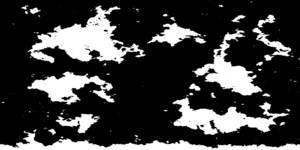Luzonta: Difference between revisions
Jump to navigation
Jump to search
No edit summary |
No edit summary |
||
| Line 1: | Line 1: | ||
<blockquote>''This page contains the canonical information about the planet Luzonta, if you are looking for regional information look at [[Luzonta (Region)]].''</blockquote> | <blockquote>''This page contains the canonical information about the planet Luzonta, if you are looking for regional information look at [[Luzonta (Region)]].''</blockquote> | ||
{{Infobox planet| bgcolour = #c0c0ff| name = {{black|Luzonta}}| symbol = | background =| image = [[File:Draft 1.png|300px]]| caption = A black and white map of Luzonta.| alt_names = [[wiktionary:world#Anglish|The World]]| epoch = A2000| aphelion = {{convert|152100000|km|mi|comma=gaps|abbr=on}}| perihelion = {{convert|147095000|km|mi|comma=gaps|abbr=on}} | semimajor = {{convert|149598023|km|mi|comma=gaps|abbr=on}} | eccentricity = ~0.0167086| period = {{convert|365|day|month|comma=gaps|abbr=on}} | avg_speed = {{convert|29.78|km/s|mi/s|comma=gaps|abbr=on}} | mean_anomaly = 358.617°| inclination = | asc_node = | arg_peri = | satellites =| allsatellites = yes| physical_characteristics = yes| mean_radius = 6,306.9 km| equatorial_radius = {{convert|6378.1|km|mi|comma=gaps|abbr=on}}| polar_radius = {{convert|6356.8|km|mi|comma=gaps|abbr=on}}| flattening = 0.0033528| circumference = {{convert|40075.017|km|mi|comma=gaps|abbr=on}} {{smaller|(equatorial)}}<br>{{convert|40007.86|km|mi|comma=gaps|abbr=on}} {{smaller|(meridional)}}| surface_area = 510,072,000km<sup>2</sup><br>(316,944,000 mi<sup>2</sup>)| volume = 1.08321 × 10<sup>12</sup>km<sup>3</sup>| mass = 5.97237 x 10<sup>24</sup> kg| density = 5.514 g/cm<sup>3</sup>| surface_grav = 9.807 m/s<sup>2</sup>| moment_of_inertia_factor = 0.3307| escape_velocity = {{convert|11.186|km/s|mi/s|comma=gaps|abbr=on}} | sidereal_day = {{convert|0.99726968|day|hour|comma=gaps|abbr=on}} | rot_velocity = {{convert|0.4651|km/s|mi/s|comma=gaps|abbr=on}} | axial_tilt = 23.4392811°| albedo = 0.367 geometric<br>0.306 Bond| atmosphere = yes| temperatures = yes| temp_name1 = Celsius| min_temp_1 = −89.2 °C| mean_temp_1 = 14.9 °C| max_temp_1 = 56.9 °C| temp_name2 = Fahrenheit| min_temp_2 =−128 °F| mean_temp_2 = 58.7 °F| max_temp_2 = 134.3 °F| temp_name3 = | min_temp_3 = | mean_temp_3 = | max_temp_3 = | population_estimate = 13,940,661,784| surface_pressure = 101.325 kPa (at MSL)| atmosphere_composition = 78.08% nitrogen (N<sup>2</sup>) {{smaller|(dry air)}}<br>20.95% oxygen (O<sup>2</sup>)<br>0.930% argon<br>0.039% carbon dioxide {{smaller|(climate-variable)}}| note = }} | {{Infobox planet| bgcolour = #c0c0ff| name = {{black|Luzonta}}| symbol = | background =| image = [[File:Draft 1.png|300px]]| caption = A black and white map of Luzonta.| alt_names = [[wiktionary:world#Anglish|The World]]| epoch = A2000| aphelion = {{convert|152100000|km|mi|comma=gaps|abbr=on}}| perihelion = {{convert|147095000|km|mi|comma=gaps|abbr=on}} | semimajor = {{convert|149598023|km|mi|comma=gaps|abbr=on}} | eccentricity = ~0.0167086| period = {{convert|365|day|month|comma=gaps|abbr=on}} | avg_speed = {{convert|29.78|km/s|mi/s|comma=gaps|abbr=on}} | mean_anomaly = 358.617°| inclination = | asc_node = | arg_peri = | satellites =| allsatellites = yes| physical_characteristics = yes| mean_radius = 6,306.9 km| equatorial_radius = {{convert|6378.1|km|mi|comma=gaps|abbr=on}}| polar_radius = {{convert|6356.8|km|mi|comma=gaps|abbr=on}}| flattening = 0.0033528| circumference = {{convert|40075.017|km|mi|comma=gaps|abbr=on}} {{smaller|(equatorial)}}<br>{{convert|40007.86|km|mi|comma=gaps|abbr=on}} {{smaller|(meridional)}}| surface_area = 510,072,000km<sup>2</sup><br>(316,944,000 mi<sup>2</sup>)| volume = 1.08321 × 10<sup>12</sup>km<sup>3</sup>| mass = 5.97237 x 10<sup>24</sup> kg| density = 5.514 g/cm<sup>3</sup>| surface_grav = 9.807 m/s<sup>2</sup>| moment_of_inertia_factor = 0.3307| escape_velocity = {{convert|11.186|km/s|mi/s|comma=gaps|abbr=on}} | sidereal_day = {{convert|0.99726968|day|hour|comma=gaps|abbr=on}} | rot_velocity = {{convert|0.4651|km/s|mi/s|comma=gaps|abbr=on}} | axial_tilt = 23.4392811°| albedo = 0.367 geometric<br>0.306 Bond| atmosphere = yes| temperatures = yes| temp_name1 = Celsius| min_temp_1 = −89.2 °C| mean_temp_1 = 14.9 °C| max_temp_1 = 56.9 °C| temp_name2 = Fahrenheit| min_temp_2 =−128 °F| mean_temp_2 = 58.7 °F| max_temp_2 = 134.3 °F| temp_name3 = | min_temp_3 = | mean_temp_3 = | max_temp_3 = | population_estimate = 13,940,661,784| surface_pressure = 101.325 kPa (at MSL)| atmosphere_composition = 78.08% nitrogen (N<sup>2</sup>) {{smaller|(dry air)}}<br>20.95% oxygen (O<sup>2</sup>)<br>0.930% argon<br>0.039% carbon dioxide {{smaller|(climate-variable)}}| note = }} | ||
Luzonta, or the Earth ({{wp|English Language|Anglish}}) or Tierro ({{wp|Spanish Language|Spanish}}) is the fourth planet from the [[Son (Luzonta)|Son]]. It is the only known planet to accommodate {{wp|life}}. There are around 8 million different plant and animal species around the World. Scientific analysis has concluded that Luzonta formed andd developed over 4 billion years ago. The Earth rotates around the Son in 365 and ¼ days, a period commonly accepted as an Earth year. | Luzonta, or the Earth ({{wp|English Language|Anglish}}) or Tierro ({{wp|Spanish Language|Spanish}}) is the fourth planet from the [[Son (Luzonta)|Son]]. It is the only known planet to accommodate {{wp|life}}. There are around 8 million different plant and animal species around the World. Scientific analysis has concluded that Luzonta formed andd developed over 4 billion years ago. The Earth rotates around the Son in 365 and ¼ days, a period commonly accepted as an Earth year. | ||
[[Category:Luzonta]] | |||
{{Template:Region icon Luzonta}} | |||
Revision as of 20:58, 18 May 2022
This page contains the canonical information about the planet Luzonta, if you are looking for regional information look at Luzonta (Region).
 A black and white map of Luzonta. | |||||||||||||
| Designations | |||||||||||||
|---|---|---|---|---|---|---|---|---|---|---|---|---|---|
| The World | |||||||||||||
| Orbital characteristics | |||||||||||||
| Epoch A2000 | |||||||||||||
| Aphelion | 152100000 km (94500000 mi) | ||||||||||||
| Perihelion | 147095000 km (91401000 mi) | ||||||||||||
| 149598023 km (92955902 mi) | |||||||||||||
| Eccentricity | ~0.0167086 | ||||||||||||
| 365 d (12.0 months) | |||||||||||||
Average orbital speed | 29.78 km/s (18.50 mi/s) | ||||||||||||
| 358.617° | |||||||||||||
| Physical characteristics | |||||||||||||
Equatorial radius | 6378.1 km (3963.2 mi) | ||||||||||||
Polar radius | 6356.8 km (3949.9 mi) | ||||||||||||
| Flattening | 0.0033528 | ||||||||||||
| Circumference | 40075.017 km (24901.461 mi) (equatorial) 40007.86 km (24859.73 mi) (meridional) | ||||||||||||
| 510,072,000km2 (316,944,000 mi2) | |||||||||||||
| Volume | 1.08321 × 1012km3 | ||||||||||||
| Mass | 5.97237 x 1024 kg | ||||||||||||
Mean density | 5.514 g/cm3 | ||||||||||||
| 9.807 m/s2 | |||||||||||||
| 0.3307 | |||||||||||||
| 11.186 km/s (6.951 mi/s) | |||||||||||||
Sidereal rotation period | 0.99726968 d (23.934472 h) | ||||||||||||
Equatorial rotation velocity | 0.4651 km/s (0.2890 mi/s) | ||||||||||||
| 23.4392811° | |||||||||||||
| Albedo | 0.367 geometric 0.306 Bond | ||||||||||||
| |||||||||||||
| Atmosphere | |||||||||||||
Surface pressure | 101.325 kPa (at MSL) | ||||||||||||
| Composition by volume | 78.08% nitrogen (N2) (dry air) 20.95% oxygen (O2) 0.930% argon 0.039% carbon dioxide (climate-variable) | ||||||||||||
Luzonta, or the Earth (Anglish) or Tierro (Spanish) is the fourth planet from the Son. It is the only known planet to accommodate life. There are around 8 million different plant and animal species around the World. Scientific analysis has concluded that Luzonta formed andd developed over 4 billion years ago. The Earth rotates around the Son in 365 and ¼ days, a period commonly accepted as an Earth year.